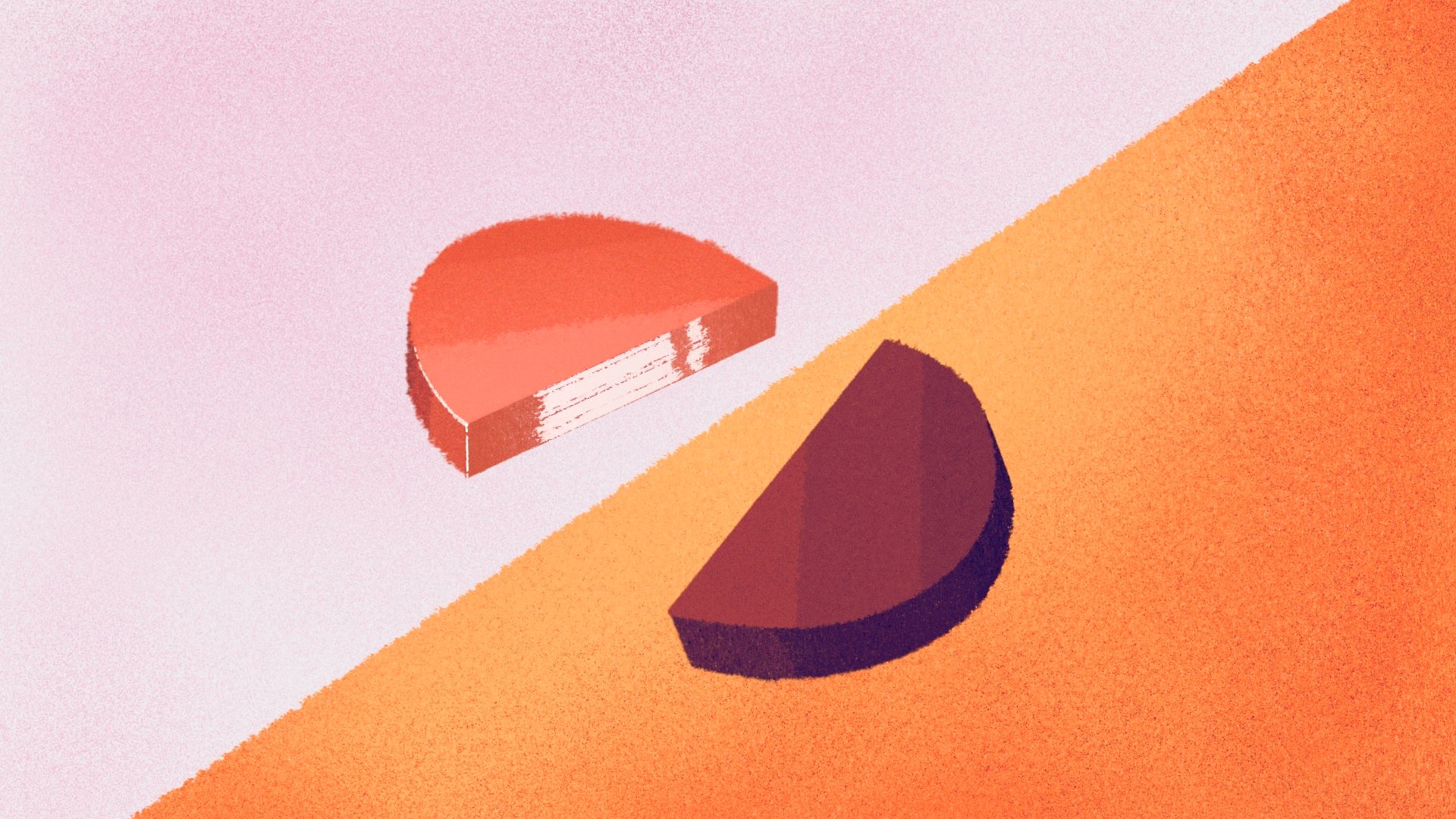Coming soon to the USA! While our services may not be available yet, sign up now to stay in the loop as we bring our innovative crypto solutions to America.
The Sacrificial Half
May 12, 2020

The bitcoin halvening is HERE. We take you through the ins and outs of bitcoin’s biggest event.
At 5.23 am (AEST) this morning a seismic shift occurred: the amount of produced every time a block is mined was slashed from 12.5 to 6.25 BTC. It’s known as the Halvening and it could be the single most important event in crypto. Here’s what happens next.

A half serve
In effect, the halving means that the cost of producing bitcoin has doubled overnight, while the amount of bitcoin actually making it to the market has halved. If you think about it in the context of any other market, the implications are obvious – it’s an artificially induced supply shock of the highest order. It’s all part of bitcoin’s mission to be a hedge against global inflation: rather than printing more money, bitcoin is taking cash off the table instead.
What happens next?
We’ve only experienced two previous halvings (2012 and 2016), so the data set is not what you’d call voluminous. But there are a couple of things we can say with some certainty.
First, the actual moment of the halving will likely be a non-event. Unlike, say, Xi Jinping’s announcement that China was going to become , there is literally no mystery about the halving. We’ve known exactly when it was going to happen for years. Miners have prepared for it – some made a pre-emptive – and serious traders have been trading with it in mind for months.
Second is that it will cause some high-grade market volatility – a volatility that could be seen during the Mother’s Day massacre on Sunday, when the bitcoin price dropped 15% in 15 minutes because YOLO. While the halving itself is certain, the reaction of market participants is less so and there’s a whole lot of six-dimensional mental chess going on as major players try to position themselves for what happens next.
But when the dust settles in a month or three, the equation becomes rather more straightforward: are there more people wanting to buy less bitcoin? If the answer is yes, then it sets the scene for the kind of outrageous market expansion we witnessed in 2013 and 2017. If the answer is no, well, we had a good run. Time to start hiding gold under your bed instead.
Four more years!
On a personal note, this is my 26th newsletter which means I’ve been writing these things for a full year. In that time we’ve seen Facebook jump into the crypto space (and then promptly edge back out), China declare itself a blockchain economy and a financial crisis the likes of which hasn’t been seen since the Great Depression. And through it all the price has done what it does best: fluctuate wildly. Remember when the price dropped 50% in a day? Talk about halving.
But the most consistent theme for me over the last year is simple: growth. Growth in interest, growth in volume, growth in infrastructure, regulatory certainty, media understanding and institutional involvement. And, perhaps most of all, growth in bitcoin’s reason for being. When the global financial party was in full swing, bitcoin was never going to be more than a curiosity, a hypothetical hedge for a crisis that would never occur. But now that crisis is in full swing, government debt and inflation are screaming upwards at dizzying speed and suddenly bitcoin seems like one of the most stable bets out there.
No-one knows for certain what’s going to happen over the coming weeks, months and years, but compared to where we were during the last halving in 2016, bitcoin looks ready to take on the world. I can’t wait to see where we are in 2024.
Cryptopia: Bitcoin, Blockchains & The Future of The Internet
Get your popcorn ready! If you missed your chance to watch this compelling documentary about the who, what and how of blockchain that covers four continents and more than 25 of the scene’s most important and outspoken personalities – as well as an eye-opening visit to Xapo’s top secret bitcoin storage vault, you can now watch it .
We are not affiliated, associated, endorsed by, or in any way officially connected with any business or person mentioned in articles published by CoinJar. All writers’ opinions are their own and do not constitute financial or legal advice in any way whatsoever. Nothing published by CoinJar constitutes an investment or legal recommendation, nor should any data or content published by CoinJar be relied upon for any investment activities. CoinJar strongly recommends that you perform your own independent research and/or seek professional advice before making any financial decisions.
Don’t invest unless you’re prepared to lose all the money you invest. This is a high‑risk investment and you should not expect to be protected if something goes wrong. Take 2 minutes to learn more: .
Cryptoassets traded on CoinJar UK Limited are largely unregulated in the UK, and you are unable to access the Financial Service Compensation Scheme or the Financial Ombudsman Service. We use third party banking, safekeeping and payment providers, and the failure of any of these providers could also lead to a loss of your assets. We recommend you obtain financial advice before making a decision to use your credit card to purchase cryptoassets or to invest in cryptoassets. Capital Gains Tax may be payable on profits.
CoinJar’s digital currency exchange services are operated in Australia by CoinJar Australia Pty Ltd ACN 648 570 807, a registered digital currency exchange provider with AUSTRAC; and in the United Kingdom by CoinJar UK Limited (company number 8905988), registered by the Financial Conduct Authority as a Cryptoasset Exchange Provider and Custodian Wallet Provider in the United Kingdom under the Money Laundering, Terrorist Financing and Transfer of Funds (Information on the Payer) Regulations 2017, as amended (Firm Reference No. 928767).
EU residents: CoinJar Europe Limited (CRO 720832) is registered as a VASP and supervised by the Central Bank of Ireland (Registration number C496731) for Anti-Money Laundering and Countering the Financing of Terrorism purposes only.
On/Offchain
Your weekly dose of crypto news & opinion.
Join more than 150,000 subscribers to CoinJar's crypto newsletter.
Your information is handled in accordance with CoinJar’s .
More from CoinJar Blog
Copyright © 2023 CoinJar, Inc. All rights reserved. The products and features displayed on this website are representative of our Australian and UK services and certain features may not be offered to customers residing in the United States, depending on applicable state and federal regulations.
Google Pay is a trademark of Google LLC. Apple Pay and Apple Watch are trademarks of Apple Inc.
This site is protected by reCAPTCHA and the and apply.